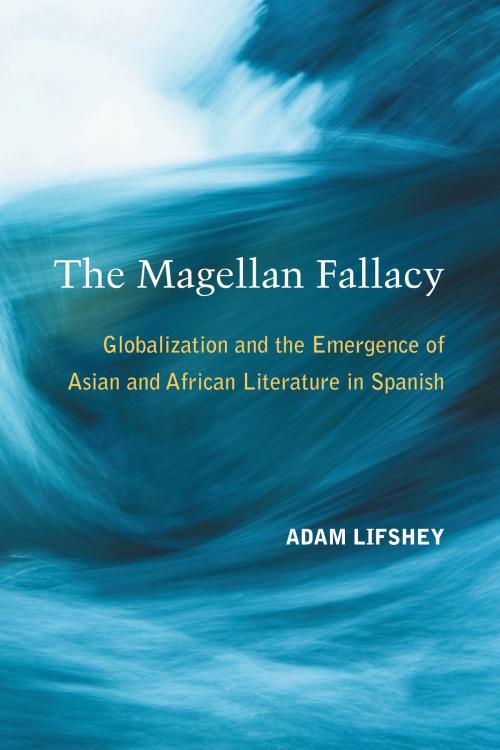The Magellan Fallacy
Globalization and the Emergence of Asian and African Literature in Spanish
Fiction & Literature, Literary Theory & Criticism, African, Asian| Author: | Adam Lifshey | ISBN: | 9780472028665 |
| Publisher: | University of Michigan Press | Publication: | September 14, 2012 |
| Imprint: | University of Michigan Press | Language: | English |
| Author: | Adam Lifshey |
| ISBN: | 9780472028665 |
| Publisher: | University of Michigan Press |
| Publication: | September 14, 2012 |
| Imprint: | University of Michigan Press |
| Language: | English |
Winner of the 2015 A-Asia/ICAS Africa-Asia Book Prize, a global competition, for the best book in English, French, or Portuguese on any topic linking Asia and Africa.
The Magellan Fallacy argues that literature in Spanish from Asia and Africa, though virtually unknown, reimagines the supposed centers and peripheries of the modern world in fundamental ways. Through archival research and comparative readings, The Magellan Fallacy rethinks mainstream mappings of diverse cultures while advocating the creation of a new field of scholarship: global literature in Spanish. As the first attempt to analyze Asian and African literature in Spanish together, and doing so while ranging over all continents, The Magellan Fallacy crosses geopolitical and cultural borders without end. The implications of the book, therefore, extend far beyond the lands formerly ruled by the Spanish empire*. The Magellan Fallacy* shows that all theories of globalization, including those focused on the Americas and Europe, must be able to account for the varied significances of hispanophone Asia and Africa as well.
Winner of the 2015 A-Asia/ICAS Africa-Asia Book Prize, a global competition, for the best book in English, French, or Portuguese on any topic linking Asia and Africa.
The Magellan Fallacy argues that literature in Spanish from Asia and Africa, though virtually unknown, reimagines the supposed centers and peripheries of the modern world in fundamental ways. Through archival research and comparative readings, The Magellan Fallacy rethinks mainstream mappings of diverse cultures while advocating the creation of a new field of scholarship: global literature in Spanish. As the first attempt to analyze Asian and African literature in Spanish together, and doing so while ranging over all continents, The Magellan Fallacy crosses geopolitical and cultural borders without end. The implications of the book, therefore, extend far beyond the lands formerly ruled by the Spanish empire*. The Magellan Fallacy* shows that all theories of globalization, including those focused on the Americas and Europe, must be able to account for the varied significances of hispanophone Asia and Africa as well.















